Log in and enrol
Sustainable Farm Design in Developing Countries
Sustainable Farm Design in Developing Countries
Intelligent inFrastructure dEsign foR a Multifunctional Efficient farm
Course description
The MOOC provides new and simplified design tools for sustainable farms in developing countries. In particular, road infrastructures and support systems for food processing and preservation are designed and optimized on local resources and needs.
The course starts with a general introduction on multi disciplinary context and the main infrastructure that should be required in isolated locations.
The main approaches and tools for preliminary design of road infrastructures, a stand-alone solar power plant and solar powered cold storage units are explored and examined.
At the end of each week, a quiz and an exercise based on a real case study are proposed as tests to assess the learning of the discussed design techniques.
Total workload of the course: 25 hours
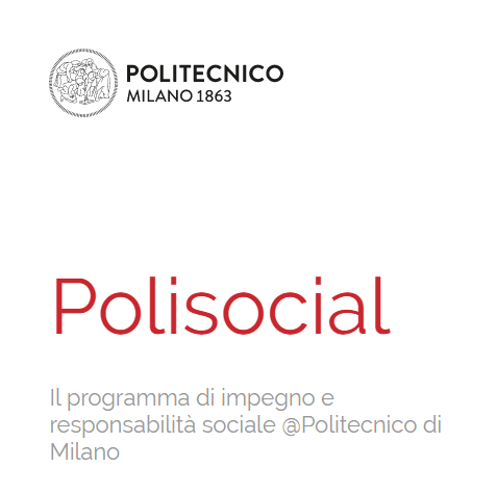
The course is the main dissemination deliverable of the Polisocial Award 2022 "Sviluppo Locale e Transizione Ecologica".
Intended Learning Outcomes
By actively participating in this MOOC, you will achieve different intended learning outcomes (ILOs).
- Use simplified and open-access tools for a preliminary design of infrastructure essential for the development of a sustainable farm in developing countries, such as bridges, solar power plants, and cold storage units.
designing systems and products inter-disciplinary programmes and qualifications involving engineering, manufacturing and construction
In particular:
Week 0 - Introduction to the course
- Describe the main targets to design a sustainable farm in developing countries;
designing systems and products planning and organising - Identify key factors and the working hypotheses necessary for the definition of the design inputs.
designing systems and products planning and organising
Week 1 - Design of road infrastructure
- Describe the main parameters for the conceptual and preliminary design of a bridge crossing a small river;
designing structures or facilities processing information, ideas and concepts planning and organising - Understand the importance of the choice of static scheme in the design of a small river crossing;
processing information, ideas and concepts planning and organising - Explain the main advantages and limits of using different building materials, so as to proceed with a preliminary design in a more conscious manner;
processing information, ideas and concepts planning and organising - Select a material (timber, steel or RC) for the primary structures (beams) and for the deck (timber - not rigid or RC/steel combined with RC – rigid);
designing structures or facilities working with numbers and measures planning and organising - Get a preliminary design of the necessary cross-sections for the beams and of the thickness of the deck through an excel tool.
designing structures or facilities working with numbers and measures
Week 2 - Design of stand-alone solar power grids
- Perform a feasibility study of an isolated photovoltaic plant in autonomy;
designing electrical or electronic systems or equipment working with numbers and measures planning and organising - Find and analyze the key parameter for plant design;
designing electrical or electronic systems or equipment working with numbers and measures - Geographically localize the installation site and define a load profile using simple and open-access softwares;working with digital devices and applications working with numbers and measures
- Design the battery and the panels based on the available irradiation and estimated load profile;
designing electrical or electronic systems or equipment working with numbers and measures
Week 3 - Design of a cold storage unit and reliable cold room operations with PV and battery integration
- Cold rooms and food preservation, from theory to the design of a cold room based on a vapor compression technology;
working with numbers and measures processing information, ideas and concepts - Ensuring the effective operations of a cold room, from theory to sizing both photovoltaic (PV) modules and batteries to maintain the appropriate conditions preventing safety issues while preserving food.
working with numbers and measures processing information, ideas and concepts
Prerequisites
Technical backgrounds in structural engineering, renewable energy management and thermodynamics are recommended.
Activities
Over and above consulting the content, in the form of videos and other web-based resources, you will have the opportunity to discuss course topics and to share ideas with your peers in the Forum of this MOOC. The forum of this MOOC is freely accessible and participation is not guided; you can use it to compare yourself with other participants, or to discuss course contents with them.
Section outline
-
-
Week 1 is devoted to civil structures.
-
Week 2 focuses on structures for energy supply and harvesting.
-
Week 3 foresees lectures on the design of a refrigerating chamber for food conservation.
-
Assessment
Your final grade for the course will be based on the results of your answers to the assessed quizzes. You have an unlimited number of attempts at each quiz, but you must wait 15 minutes before you can try again. You will have successfully completed the course if you score 60% (or higher) in each one of the assessed quizzes. The maximum score possible for each quiz is given at the beginning of the quiz. You can view your score in the quiz on your last attempt or on the 'Grades' page.
Certificate
You can achieve a certificate in the form of an Open Badge for this course, if you reach at least 60% of the total score in each one of the assessed quizzes and fill in the final survey.
Once you have completed the required tasks, you will be able to access ‘Get the Open Badge’ and start issuing the badge. Instructions on how to access the badge will be sent to your e-mail address.
The Badge does not confer any academic credit, grade or degree.
Information about fees and access to materials
The course is delivered in online mode and is available free of charge.
Course materials will remain always available to all enrolled users.
Course faculty
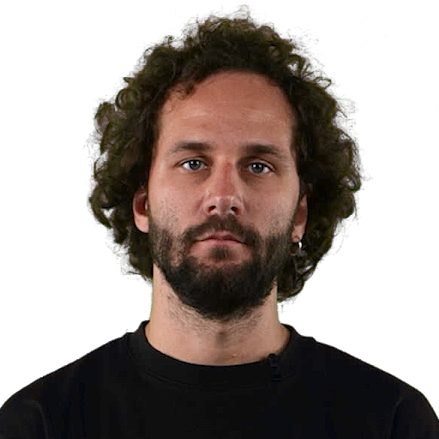
Igor Matteo Carraretto
Igor Matteo Carraretto got his PhD a couple of years ago at Politecnico di Milano in Energy Science and Technology. He started his career investigating experimental multiphase flows both with Newtonian and Non-Newtonian fluids, specifically foams. During his exchange period in the US, he focused his attention on the rheology of both foams and mixtures containing solid particles (HAp). Once back he combined his new expertise with his previous knowledge, aiming at obtaining a model to simulate the behavior of foams within pipelines. Nowadays, his attention has expanded towards new research fields. He is currently investigating the possibility of producing clean energy and fresh water, coupling the concentrated solar power technology with the forward osmosis one, devoting particular attention to the polymeric draw solutions to be deployed. His sake for curiosity is something that has always been part of his personality and now it is a fundamental aspect of his job.
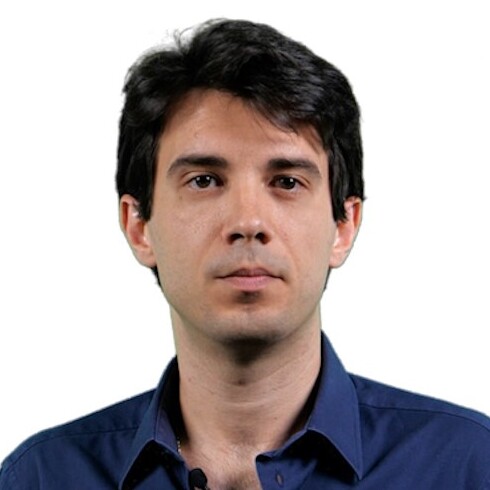
Nicola Toscani
Nicola Toscani is currently an assistant professor at the Mechanical Department, Politecnico di Milano. He received his bachelor's, master's and PhD degrees cum laude in Electrical Engineering at Politecnico di Milano in 2013, 2015 and 2019, respectively. He worked as a research fellow at the Mechanical Department, Politecnico di Milano from 2018 to 2023. His research focuses on industrial and automotive electric drives, design of power converters for the recharge of electric vehicles and/or grid interface and wireless power transfer. He co-founded the startup ePEBBs in 2021, which deals with the design and control of both power converters and integrated electric and electronic solutions. So far, he is author of 22 research papers, a monograph, a book chapter, a patent and a patent application. He did more than 40 verified peer reviews for scientific international journals. He has been involved in teaching activities since 2016 and he is currently a lecturer for a bachelor’s degree course on basic circuit theory.
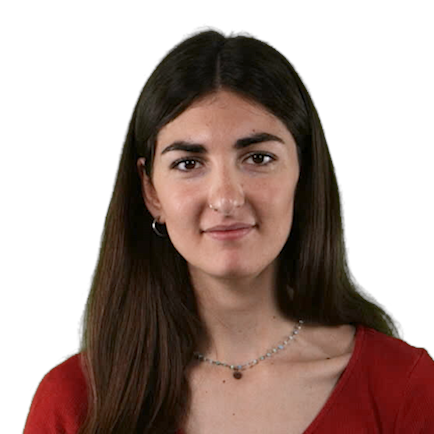
Chiara D'Ignazi
Chiara D'Ignazi is a PhD student in Energy and Nuclear Science and Technology at Politecnico di Milano. She earned both her Bachelor’s and Master’s degrees in Energy Engineering at the same university, specializing in the Energy Use and Built Environment track. Her research focuses on vapor compression systems, with a particular emphasis on the use of low-GWP (Global Warming Potential) refrigerants. Her PhD thesis, titled "Carbon dioxide-hydrocarbon blends for medium-high temperature vapor compression heat pumps", reflects her strong belief in the importance of decarbonizing society to address Climate Change.
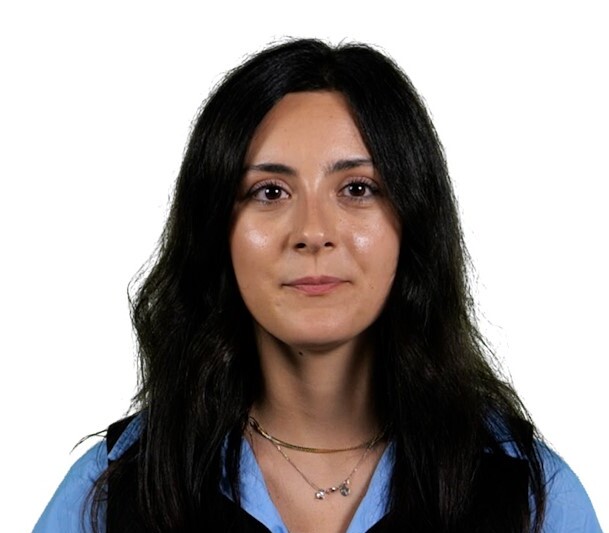
Arianna Cavallo
Arianna Cavallo was born in Bari, Italy, in 1997. She received the B.S. and the M.S. degree in Mechanical Engineering from Politecnico di Bari, Bari, Italy, in 2019 and from Politecnico di Milano, Milan, Italy, in 2022, respectively. At the moment, she is pursuing a Ph.D. degree with the Department of Mechanical Engineering of Politecnico di Milano in collaboration with Lucchini RS. Her research interests include the IoT technology for condition based monitoring of railway wheelsets, algorithms for early defect identification, smart sensors, data analysis, signal processing and vibroacoustics.
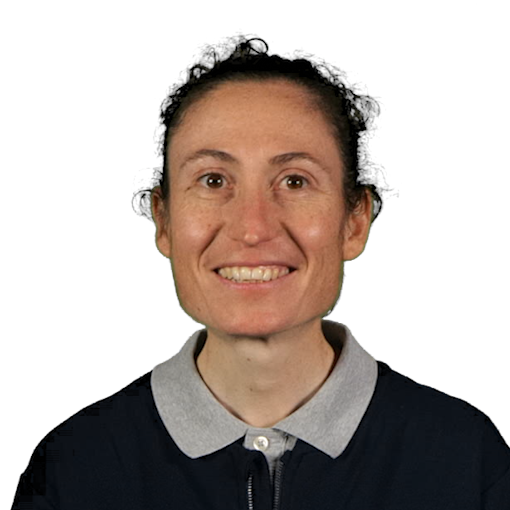
Greta Cornaggia
Greta Cornaggia received her master’s degree in civil engineering from Politecnico di Milano in 2006. Since this date she has been a teaching assistant at Politecnico di Milano in various courses for both bachelor’s and master’s degrees mainly about mechanics of solids and structures and computational mechanics. From 2006 to 2023 she has also collaborated in a structural design office working on the design of buildings and infrastructures. Between 2013 and 2021 she has contributed to research projects related to the mechanical behaviour of laminate composite materials through computational mechanics simulations and experimental tests. She is currently a research fellow at Politecnico di Milano in the field of structures with a focus on innovative solutions for retrofitting existing bridges, using numerical simulations and experimental tests.
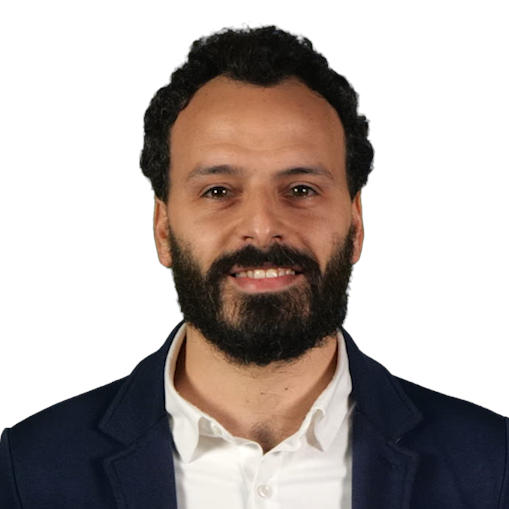
Marco Carlo Rampini
Marco Carlo Rampini is a postdoctoral research fellow in the Department of Civil and Environmental Engineering (DICA) at Politecnico di Milano (PoliMI). After completing his MSc in Civil Engineering in 2014, he began contributing to research activities as a term-contract research collaborator and went on to earn a PhD cum laude in Structural, Seismic and Geotechnical Engineering at PoliMI in 2021, with a thesis focused on AR-glass textile-based composites for the strengthening and retrofitting of reinforced concrete structures. His research primarily explores advanced cementitious materials, such as textile reinforced concrete (TRC) and high-performance fiber reinforced concrete (HPFRC), as well as the assessment, monitoring, and retrofitting of bridge structures.
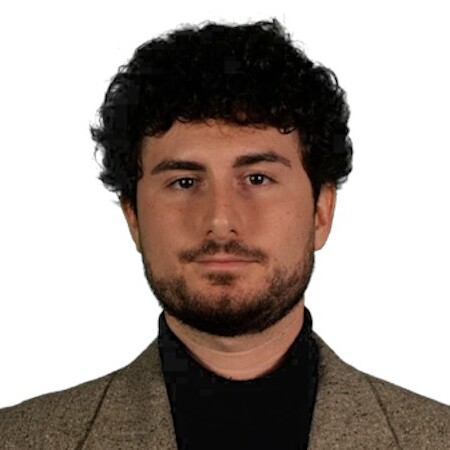
Matteo Benvenuti
Matteo Benvenuti is a PhD Student in Electrical Engineering at Politecnico di Milano. His education took place in Milan at Politecnico di Milano where he got his master’s degree in electrical engineering. He worked as vibration analyst certified by SKF Industries S.p.A and as data analyst for SDI Automazione Industriale for his master thesis in the management of a photovoltaic field. In 2023 he co-founded the startup Suncubes S.r.l. for wireless power transmission on ground and space through photovoltaic technology. He has been involved in teaching activity since 2022 and his actual research focuses on power electronics for low voltage power transfer and mid voltage grid interface/power transfer applications.
Contact details
If you have any enquiries about the course or if you need technical assistance please contact pok@polimi.it. For further information, see FAQ page.